Land and Water: Indigenous Land-Based Education Program
Dates: October to May with optional summer activities from June to August
Location: Winnipeg and online
Fee: Free
Number of students: 24
Who can apply: UM Indigenous students. Urban Indigenous youth who are not enrolled at the UM are also encouraged to apply. See FAQs below for more information.
Apply by September 30
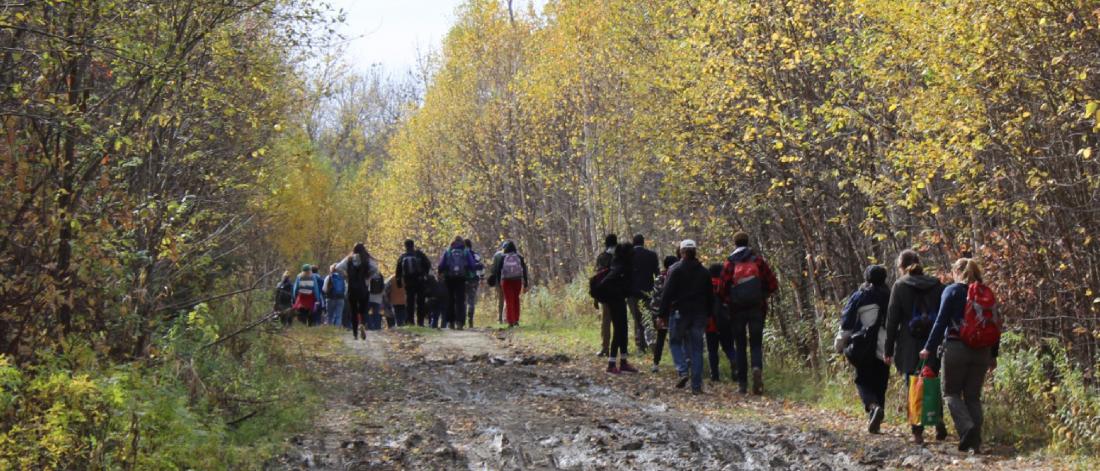
Overview
The Land and Water program runs from October through May. Drop-in opportunities are offered from June to August. The Land and Water Program is an Indigenous land-based education program that brings together Indigenous students and youth, community members, knowledge carriers, and elders to participate in immersive urban land-based experiences, as well as engaging online discussions. This year’s programming explores Indigenous relationships with our waterways, including lakes, rivers and our relatives with fins. This program is a great opportunity for urban Indigenous youth and students, 2S/LGBTQ+ youth and students, and others to learn about Indigenous peoples enduring relationships with land and water.
Participants will:
- Learn on, from and about the land
- Explore Indigenous land-based knowledges about waterways including lakes, rivers and our relatives with fins
- Develop a sense of place and belonging, and
- Spend time with elders and knowledge carriers, and engage in ceremonies.
Scroll down to see the application form!
Schedule
Tentative Schedule
Applications are reviewed after September 30th. The program kicks off in mid October with orientation programming. Participants will engage in monthly in-person immersive programming on the land. They will also participate in monthly online discussions to reflect on their learning and experience. Summer programming is offered on a drop-in basis, and Land and Water participants are encouraged to join!
Programming is generally offered in the evenings and on the weekends. Participants’ availability will be taken into consideration when scheduling the calendar.
We will also hold a space at each event for a few drop-in participants. We recognize that some students may not be able to commit to a year-long program and can only join some events. Events will be posted on the CEL Instagram page (CELumanitoba) and Facebook (Community Engaged Learning). Ensure you follow our socials to stay up to date with programming!
Fall (September-October-November)
- September 30: Application deadline
- Early October: Application review/Acceptances
- Mid-to late-October: Orientation (walk + talk)
- November (Reading Week): Fireside Storytelling (in-person)
- November (Reading Week): Online debrief
Winter (December-January-February)
- December: Fish fry and filleting
- December: Online debrief
- January: Online workshop
- February: Ice fishing
- February: Online debrief
Spring (March-April-May)
- March: Fish Skin tanning
- March: Online debrief
- April: Clay project or fish scale art
- April: Online debrief
- May: Baby Legs experiment (micro-plastics and land ethics)
- May: Online debrief
- May: Program celebrations (canoeing and mapping activity)
Summer (June-July-August)
- Drop-in programming
Our past experiences
The Land and Water program is different every year! Programming and activities take participant interests into account, as well as an annual theme. Past in-person and virtual programming has included:
Immersive land-based experiences
- a guided medicine walk through the urban Assiniboine Forest
- birch tapping with knowledge carriers in Birch Landing
- an elder-led tour of the Bannock Point petroforms in Whiteshell Provincial Park
- a day trip to Shoal Lake 40 First Nation
- building a Sweat Lodge
Community-building events
- making bannock and three sister's soup
- snow-shoeing and Indigenous games
- fish-skin tanning and rattle-making (shaker)
- beading, painting, moccasin-making, screen printing, ceremonial clothing making, and more
- attending art galleries and museums
Themes
- Climate Change and Land-Based Ways of Life
- Queering Land-Based Education
- A Seasonal Lens
- Building Relationships with Waterways and Relatives with Fins
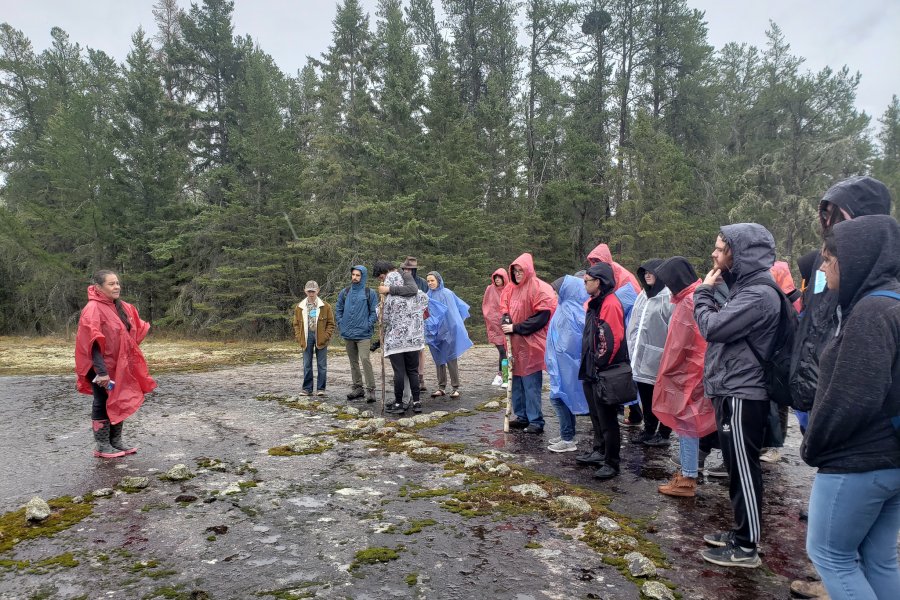
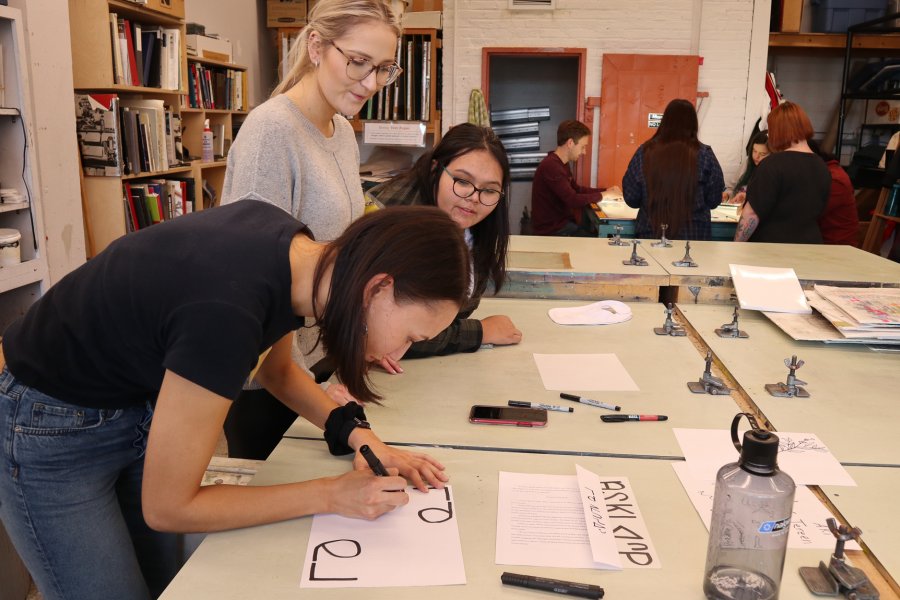
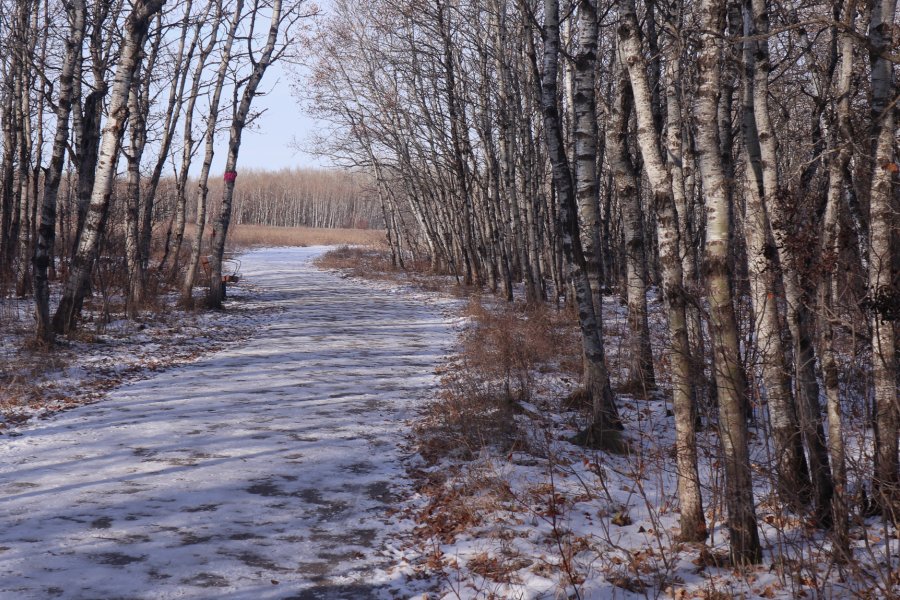
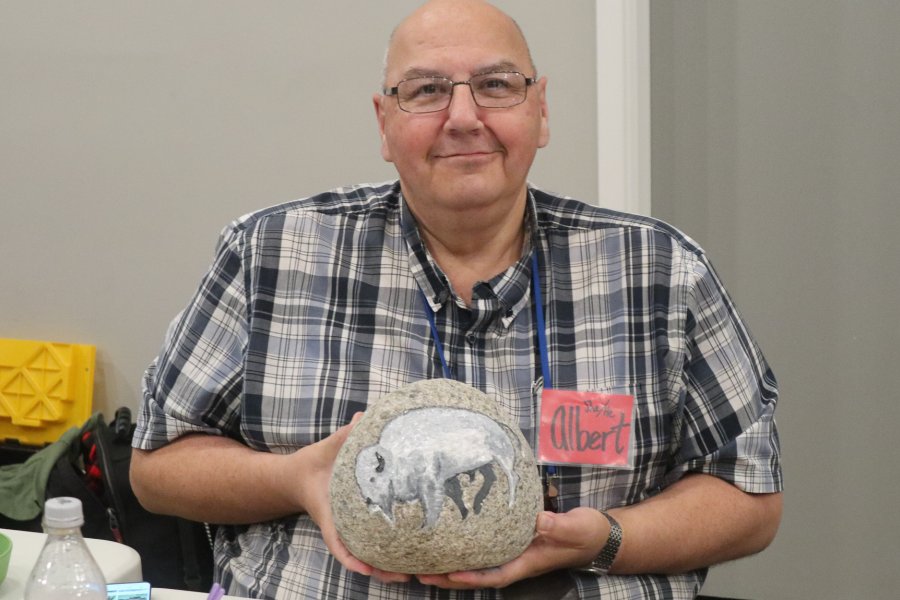
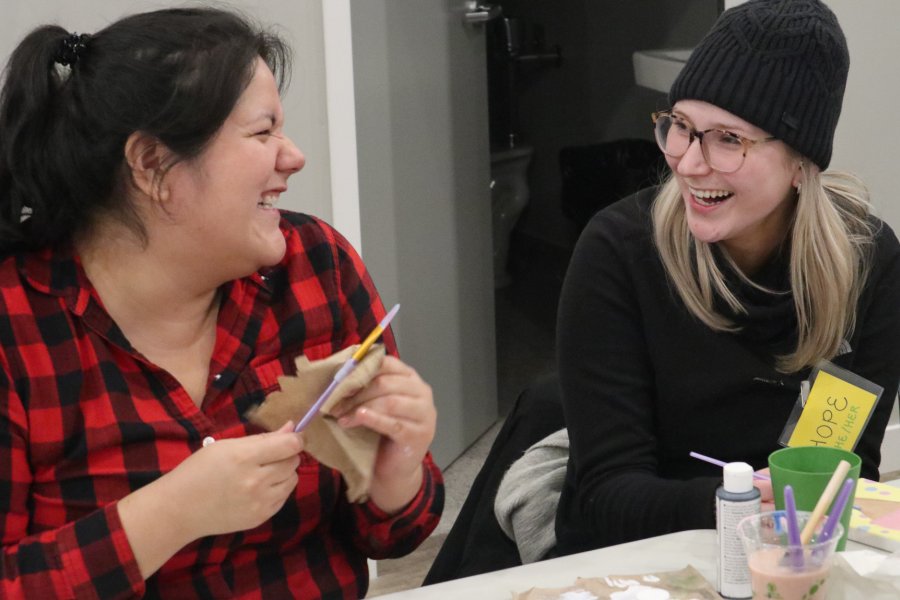
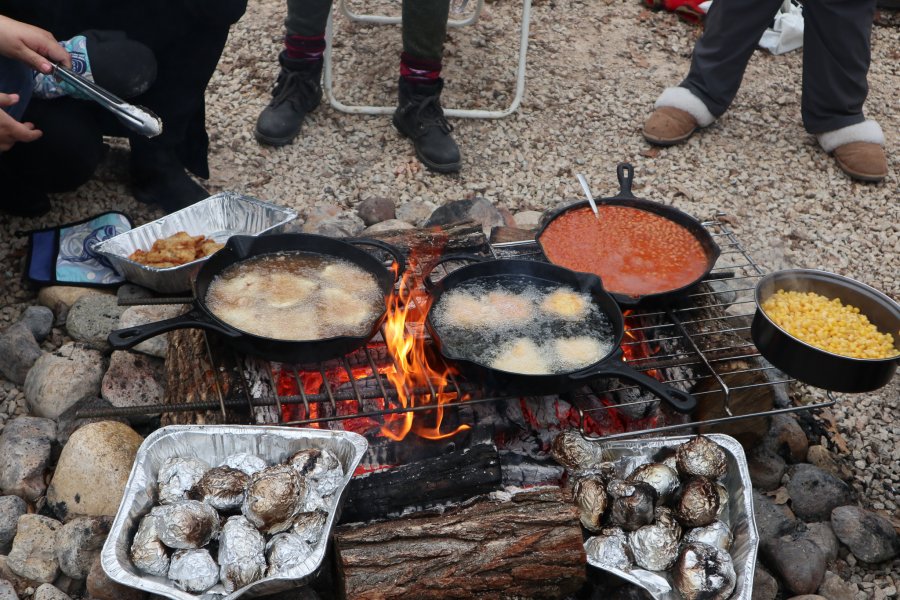
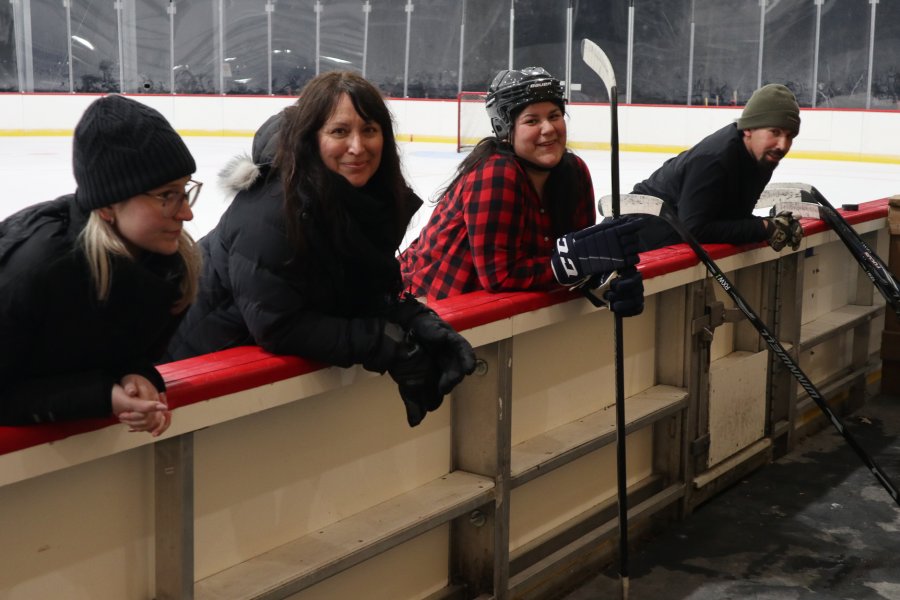
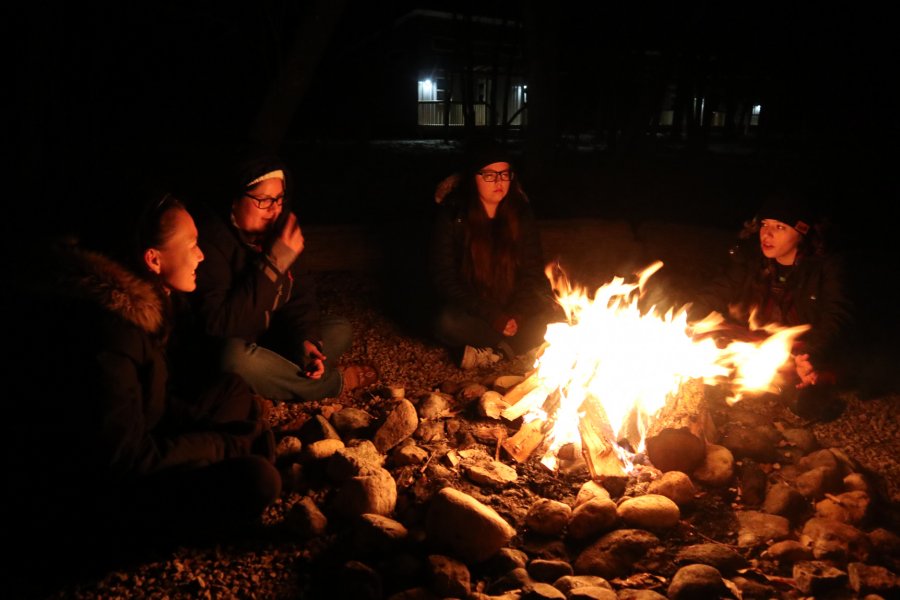
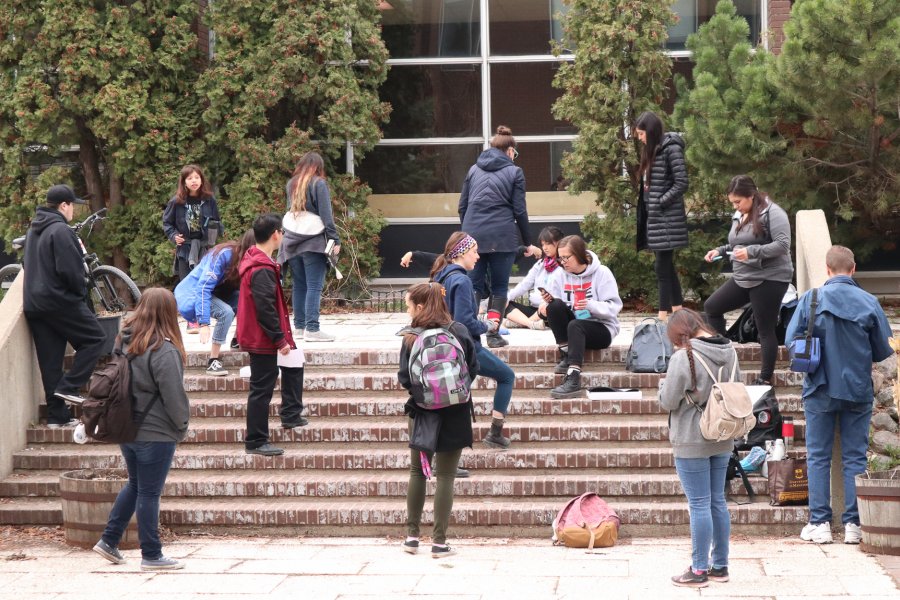
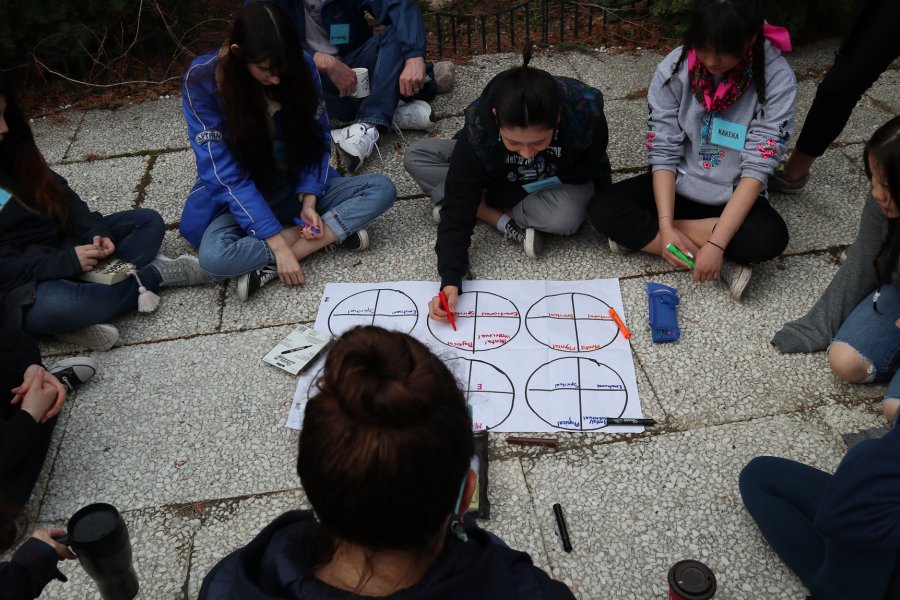
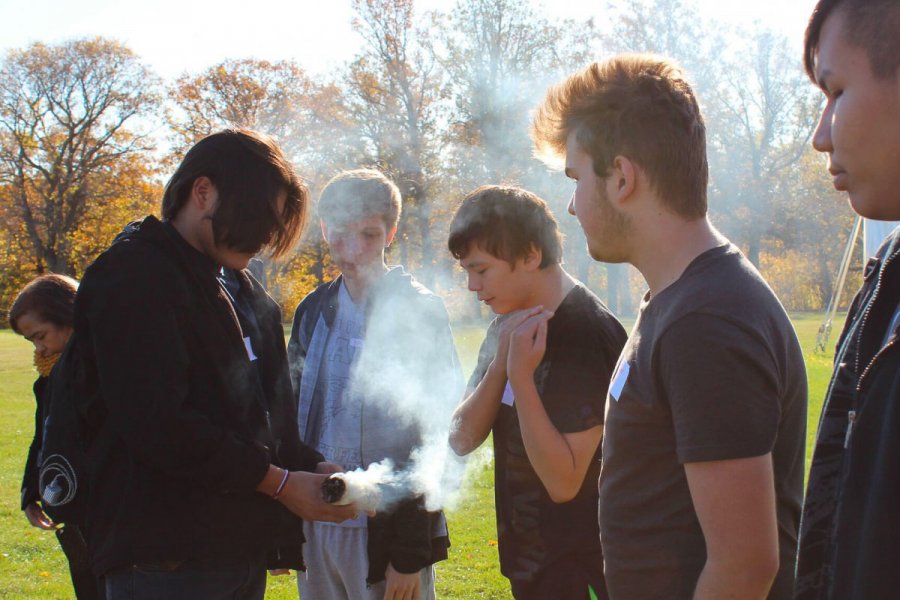
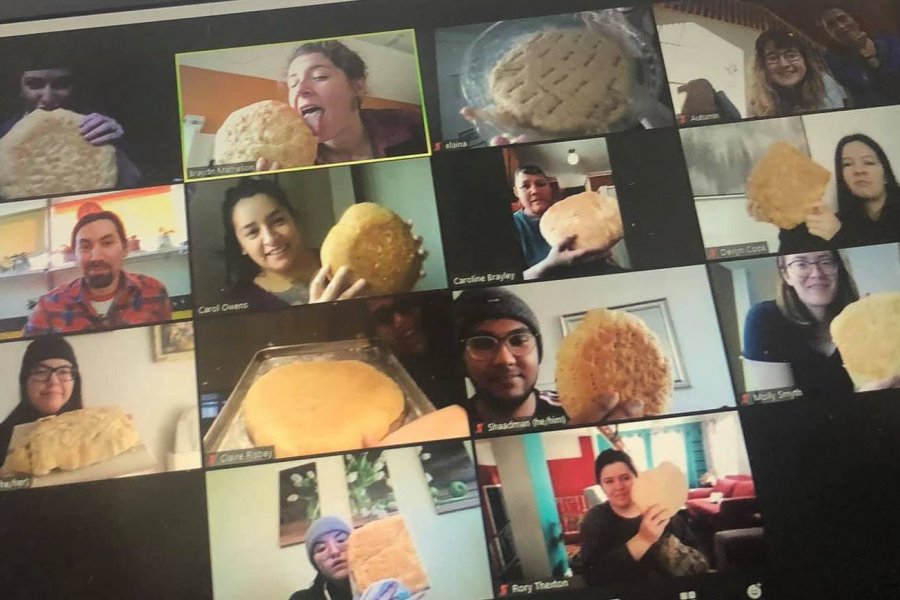
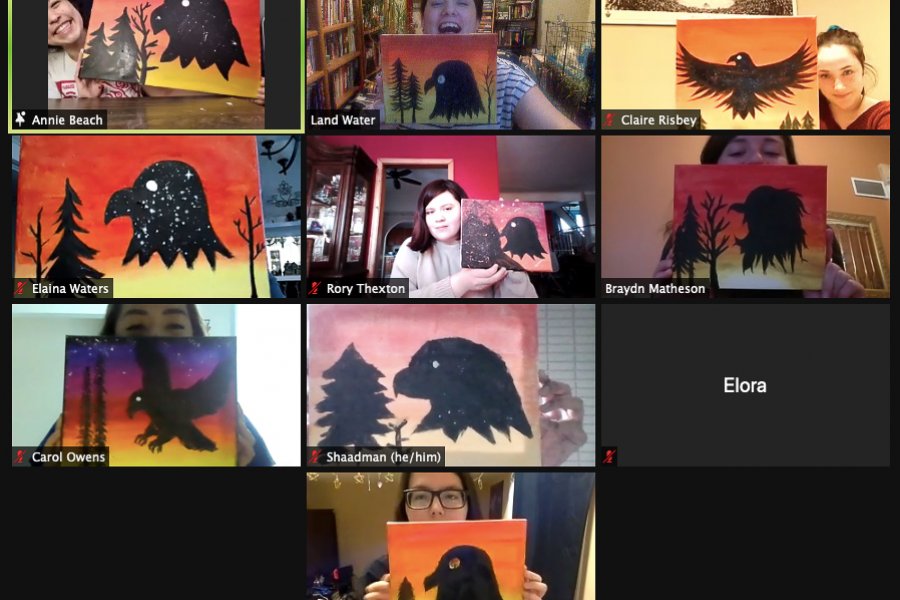
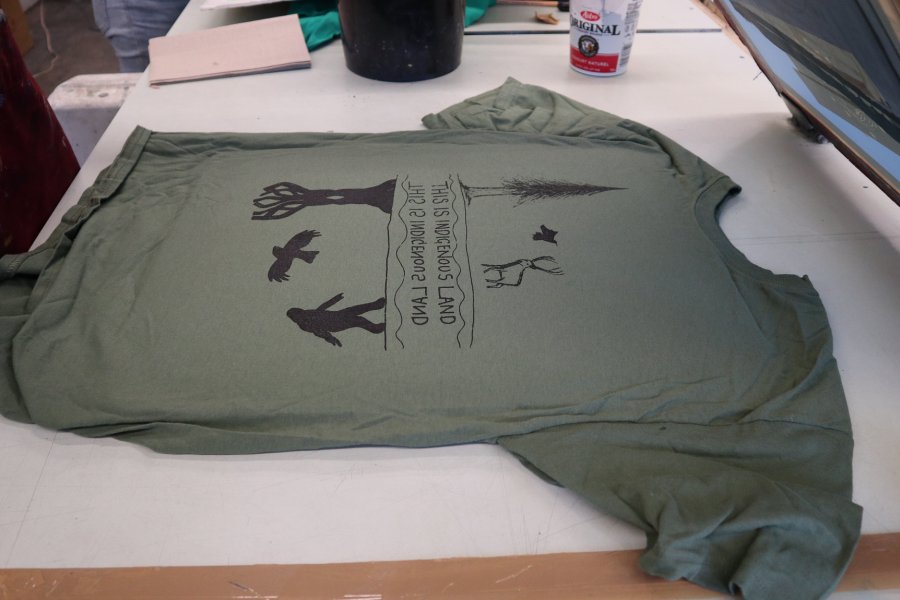
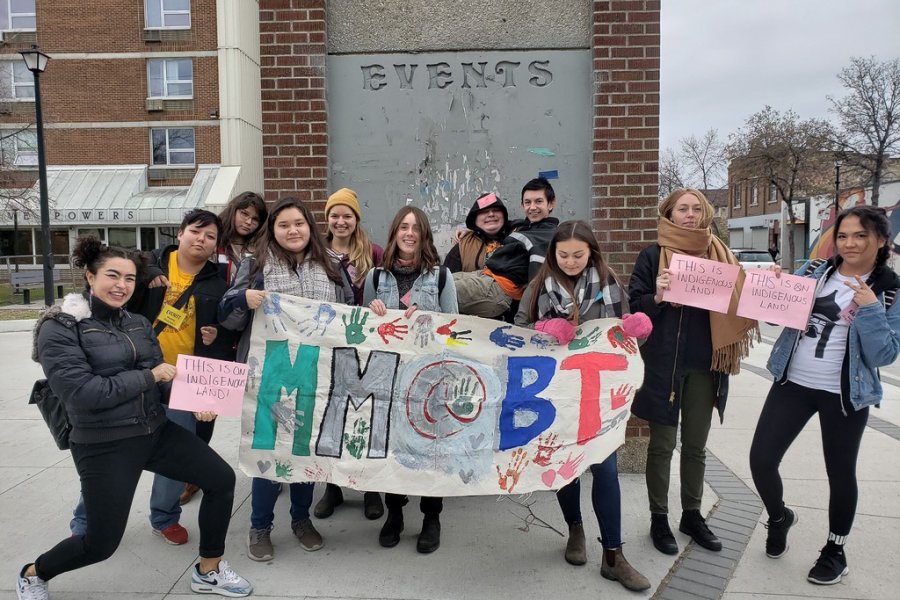
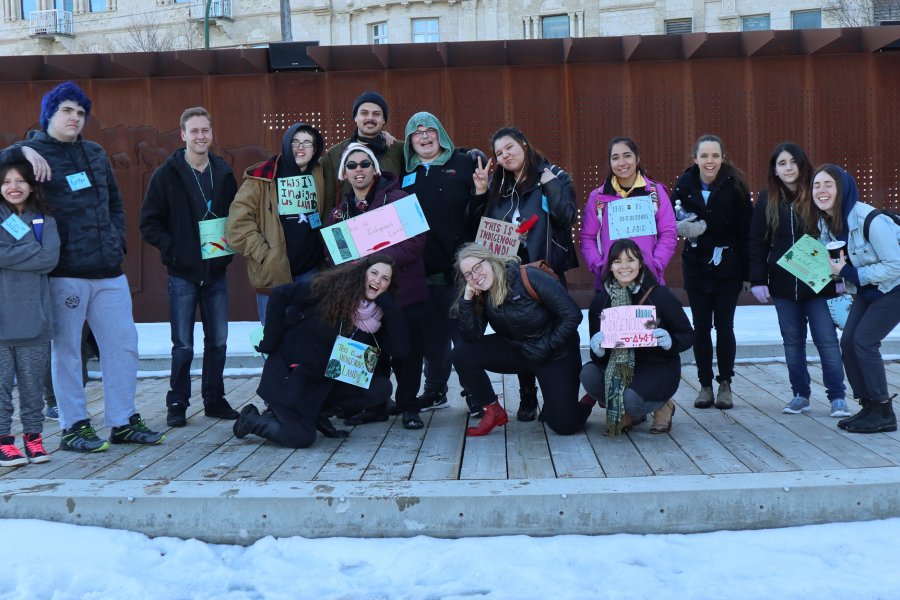
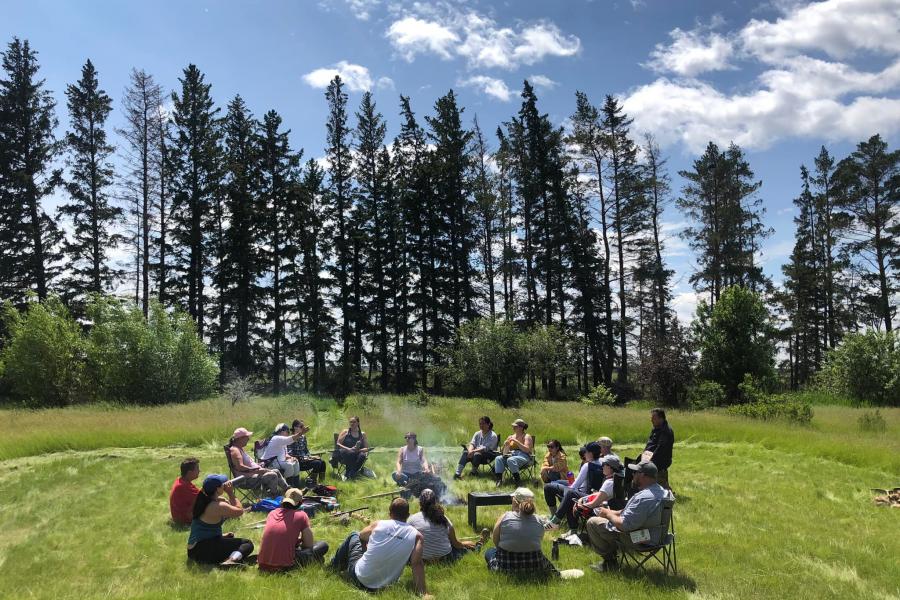
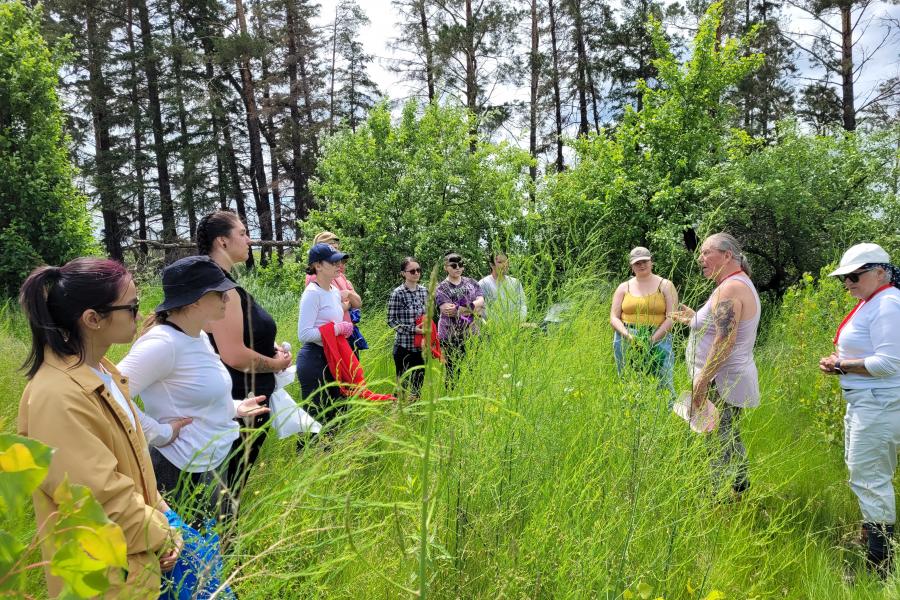
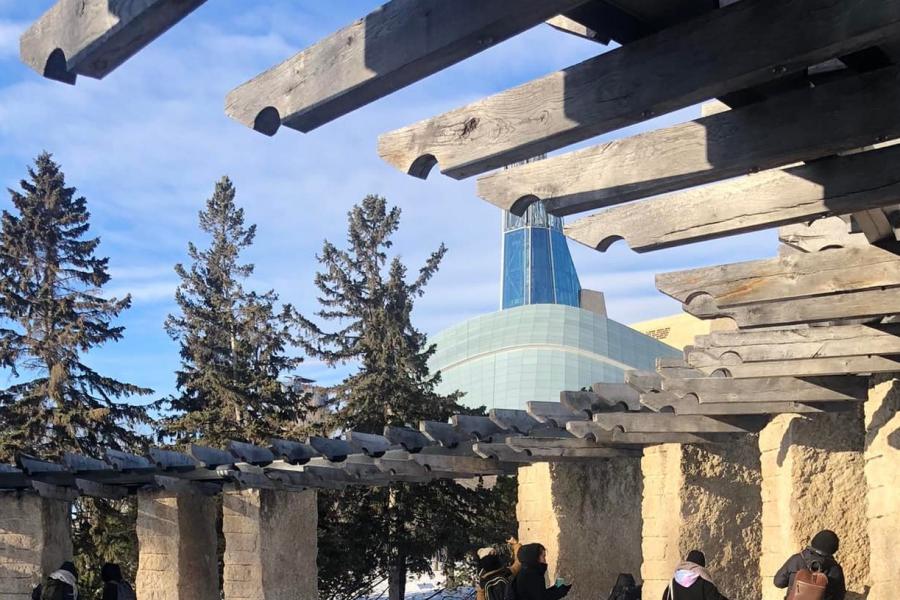
About our partners
This program benefits from the guidance and involvement of dedicated elders and grandmothers, such as Albert McLeod, Charlotte Nolin, Barbara Bruce and others. Other elders, knowledge carriers, artists and cultural teachers have also led past and future programming, including:
- Elder Audrey Logan (Indigenous foodways) and others
- Knowledge carriers Jenna Vandal (plant identification), Taylor Galvin (land-based educator) and Justin L’Arrivee (historical perspectives)
- Language teachers Quinton Delorme (Cree, n dialect), Carol Beaulieu (Anishinaabemowin) and others (Michif)
Our coordinators
Meghan Young, Program Coordinator, is a Métis graduate student currently developing a Métis fishing methodology.
Frequently Asked Questions
Who can apply?
Currently the program is open to Indigenous (First Nation, Métis, and Inuit) UM students and Indigenous youth not enrolled at UM. Indigenous full-time, part-time, graduate, undergraduate, and 2S/LGBTQIA+ students are encouraged to apply!
Are there any hidden costs?
Programming is entirely free. Any supplies or materials needed for in-person activities, including delicious Indigenous-made meals, are covered too!
If you have any questions or concerns, please contact Meghan Young, Land and Water Program Assistant, at Meghan.Young@umanitoba.ca
